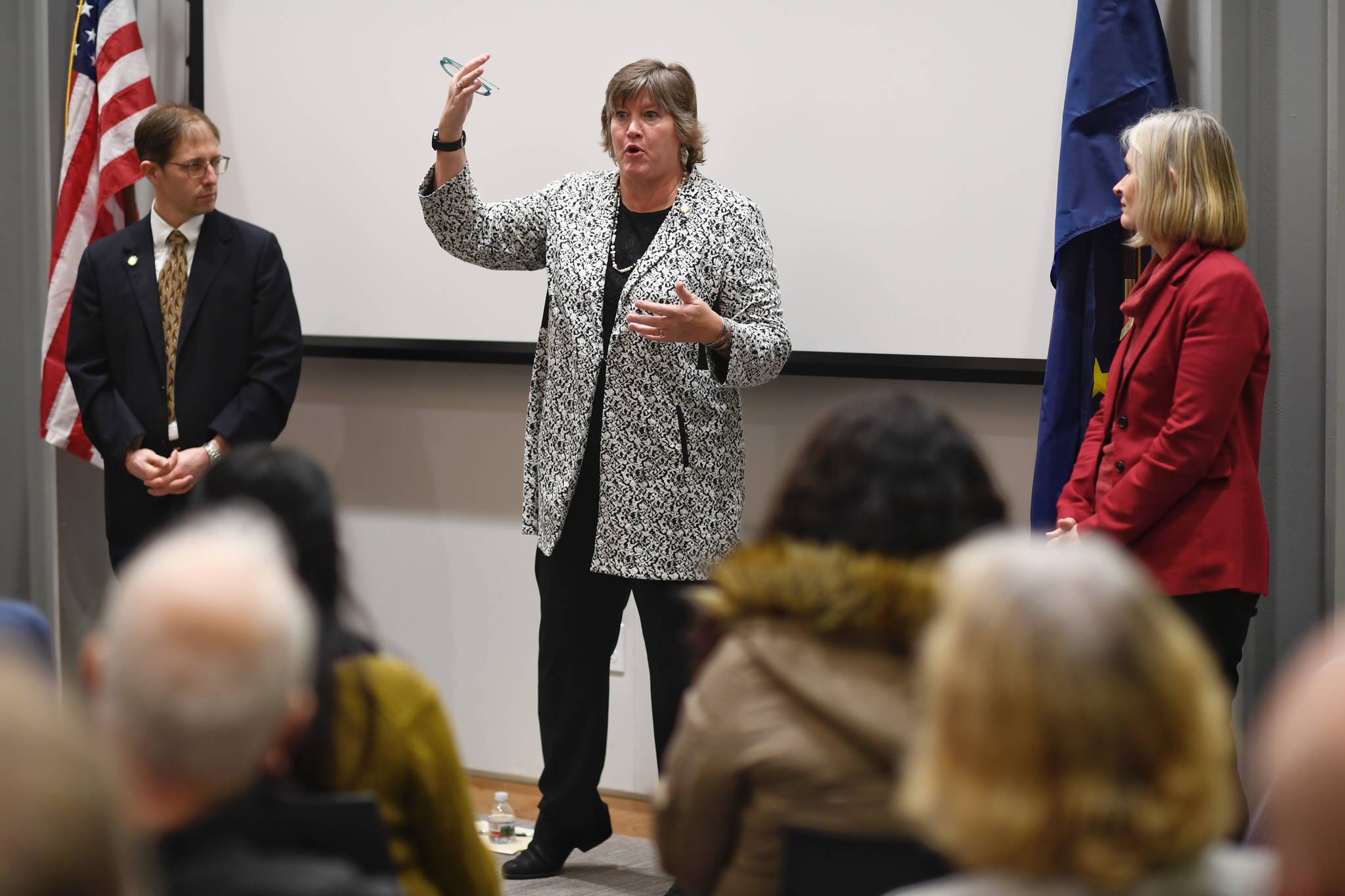During a legislative session that was defined by debates over the budget and crime reform, most other topics were put on the back burner until next year.
In terms of the number of bills that made it through the Legislature, this was the least productive session in years. Twenty-nine bills passed the Legislature this year, one of the lowest totals ever, according to figures from the Legislative Affairs Agency. The lowest number of bills in a 121-day session was in 2017, when the Legislature passed 26 bills into law, according to LAA. With four special sessions that year the number rose to 32. In 2018, the Legislature passed more than 100 bills.
Juneau’s Sen. Jesse Kiehl said he and his colleagues spent most of the past few months working out a budget in response to Gov. Mike Dunleavy’s proposed budget that made huge slashes to state services. As a result, not much else got passed.
“We were dealing with some monsters, some real giants this year,” Kiehl said in an interview Friday. “A budget that keeps Alaska working, that doesn’t crash the economy the way that the governor’s first proposal would have, is really crucial. The decisions aren’t final, but we’re in a better place, a passable place, and that’s a real accomplishment this year.”
[Million dollar special session? Here’s how much it will cost the state]
The budget is not yet complete, but both of Juneau’s representatives agreed that the current form of the budget is better than what the governor proposed in February. Reps. Sara Hannan and Andi Story both said two of the successes of session to date are the way the Legislature has responded to Dunleavy’s proposal and the way members of the public showed up in huge numbers to share their thoughts about which state programs and services are important to them.
The primary approach to balancing the budget during this session was through making cuts instead of looking for new sources of revenue. In an interview Friday, Hannan said that was one of her biggest disappointments about the first 121 days.
“I hoped and thought we would be able to have budget discussions that talked about additional revenue, and we really weren’t there this year,” Hannan said. “I think we’re going to be there by next January.”
Hannan introduced HB 94, which would have imposed a tax on electronic smoking products. She and her staff ended up pulling the bill back after learning that many e-cigarette purchases are made online, so the bill would have to be reworked to navigate the e-commerce regulations, Hannan said.
All three of Juneau’s legislators said they thought the main crime bill this session — House Bill 49 — is only one part of what the state will end up doing to address crime. The bill increases sentencing ranges and penalties, which will result in a much higher prison population and cost to the state. The bill doesn’t do enough to address root causes of crime or to give people resources to reenter society after incarceration, Story said.
“We’ve got to really address that,” Story said. “It’s going to take some resources to address that. We’re putting probably $100 million more into incarcerating people, and 95 percent of people get out or prison. We’ve got to put some money so people are coming out (of prison) healthy, staying healthy, not falling into crime if you’re addicted.”
Drafters of HB 49, including Rep. Matt Claman, D-Anchorage, said this week that they hope to include treatment resources through legislation next session.
Another main shortcoming of the regular session, Story said, was not having a long-term plan for the Alaska Marine Highway System. The current form of the budget — which can still be changed during the current special session — includes a $44 million cut to the ferry system in the next fiscal year, which will significantly reduce service throughout the winter. That’s smaller than the $75 million cut Dunleavy proposed, but the future of the marine highway is still very much in doubt.
“I see we’re going to need to be making more investments next year,” Story said. “We took a significant cut, and in the next session, what are the impacts of the significant cuts, what are we going to need next session to make sure that we’re getting reliable, affordable, sustainable service?”
The trio of Juneau lawmakers were prime sponsors on 11 bills, none of which (except for Kiehl’s VPSO bill that got rolled into HB 49) got all the way through the Legislature. Story’s HB 71, which aims to help veterans get jobs, passed the House and will go to the Senate in January. Hannan’s HB 122, which would protect an Alaska Native cemetery in Funter Bay, is in the same spot as it passed the House and now needs Senate approval.
• Contact reporter Alex McCarthy at amccarthy@juneauempire.com. Follow him on Twitter at @akmccarthy.

